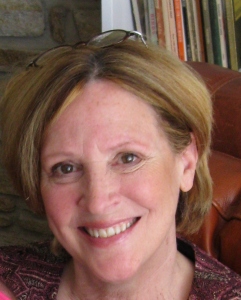My two biggest childhood fears were long shots at best: bear attacks and appendicitis. Since my neighborhood was built in 1950, every tree, bush, and errant twig were leveled to fit as many Cape Cod houses on a block as possible. I barely saw a squirrel.
Appendicitis never got any closer to me than the boy across the street, who was rushed to the hospital by ambulance after hours of crying in mysterious pain. He was carried out his front door on a stretcher as we congregated and watched in horror. Later we heard this organ we hadn’t even known existed had “exploded” inside him. Although he recovered in a few days, I knew it was just a matter of time before appendicitis came looking for me, too.
I grew up and my fears changed. Then they changed again. Now I look around and — is it just me or — are there more and more things to cause concern? Diseases that start out with a little innocent tingling in your foot. Isis. Choking on a cough drop. Tsunami. Salmonella. Snakes. Wild fires. And what if you really do fall and you can’t get up?
I am guilty of being chickenhearted.
Like this: I called for a cab at 6:30 AM, and here it is. Why do I look at the cab’s tires before I get in? I tell myself although — yes — they do look bald, I’m sure cab companies have standards. The inside of the cab smells like vomit. Once we’re on the highway, I can see the speedometer reaching insane speeds.
I say, helpfully, “We’ve got plenty of time for my flight. We’re good on time.” That’s as direct as I will get because the driver is scowling now. She eats her breakfast — a bag of Doritos and Diet Coke between her legs — as she steers with her left index finger and thumb.
“Have you worked all night?”
“Yep.” I could hear my family saying, “Bald tires and excessive speed, and it appears the driver may have fallen asleep while eating,” when people at my wake ask how I died.
But I don’t die, it turns out. So far so good.
I’m taking off my shoes and jacket at Airport Security when an unmistakable smell comes wafting by me. Vodka. This is not the 6-hour old stuff that oozes out of a person’s pores from the night before. This is a freshly slammed-down shot now filling the air. I hope it’s the passenger in front of me in the Hawaiian shirt. I sure don’t want it to be someone whose job it is to look in purses and find knives.
Ever since Amtrak starting saying, “If you see something, say something,” I’m always at the ready to scream, “Here! Here’s something you need to check out!” I give the TSA guy a good whiff as I go by. All clear.
The plane takes off and touches down smoothly, so the luck that’s been with me all my life is still holding. I take a deep breath and tell myself to trust the universe more. Because the only bears I’ve seen lately are on Discovery Channel. And after all these years, I still have my original appendix, which shows no sign of exploding. Of course it’s still early.
[I’m taking a blogging break next week to work on my book, which is nearing first draft stage. See you back here on October 1st.]
